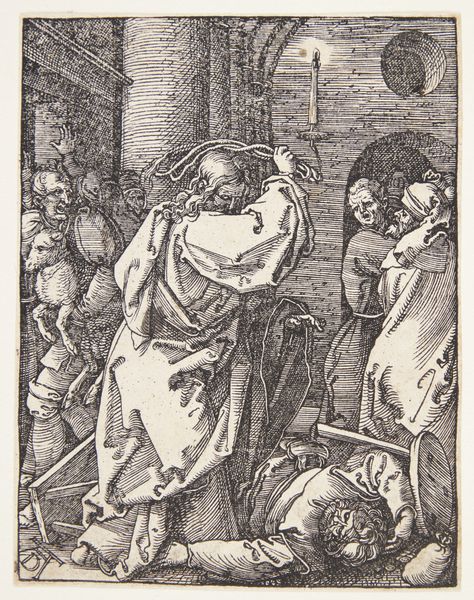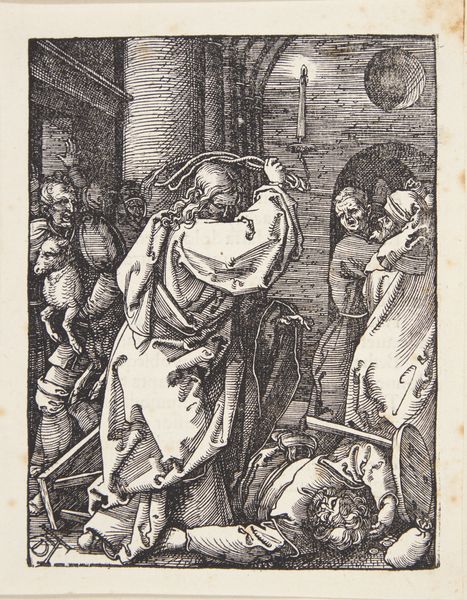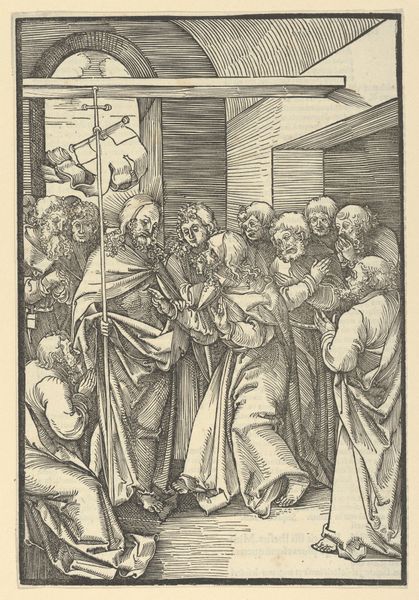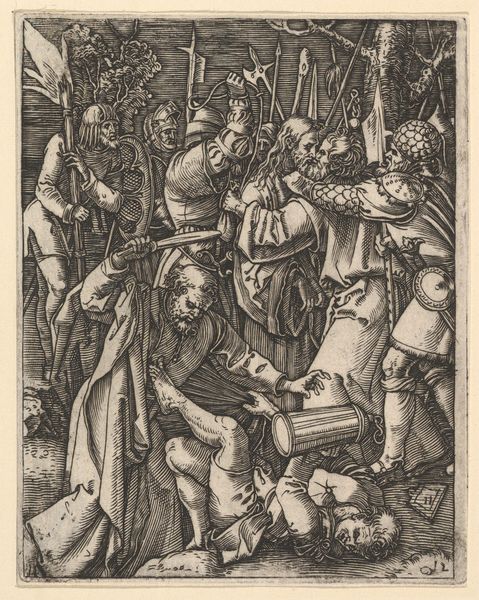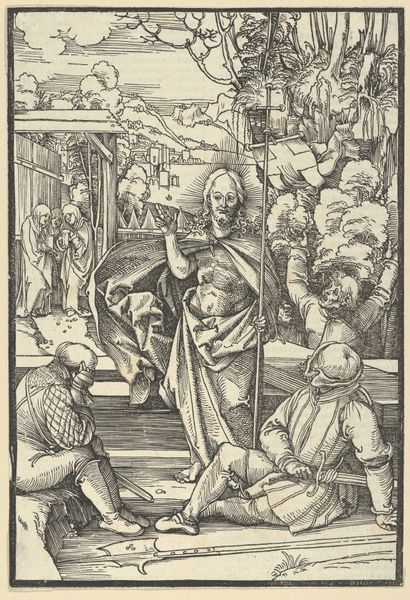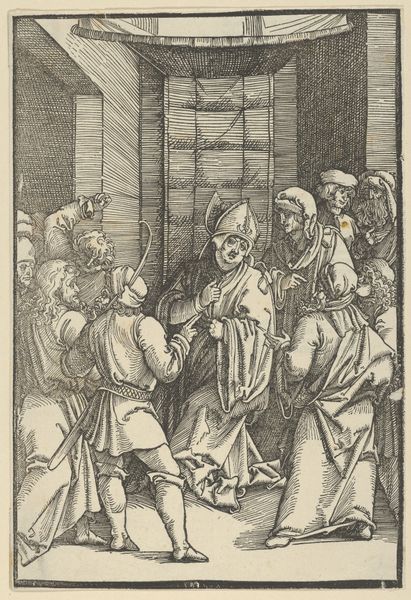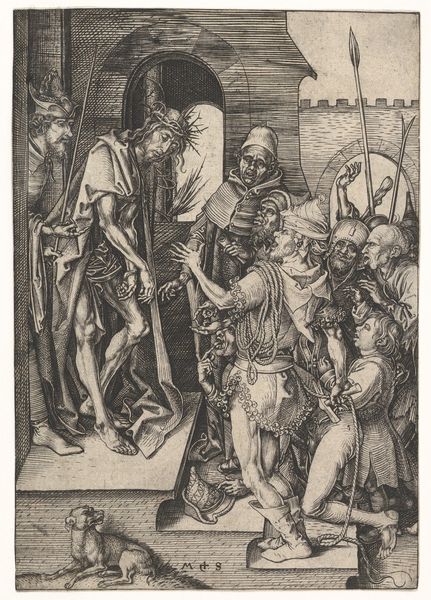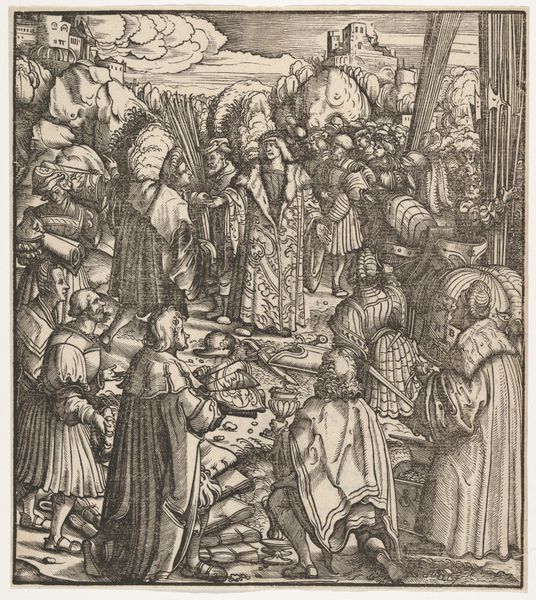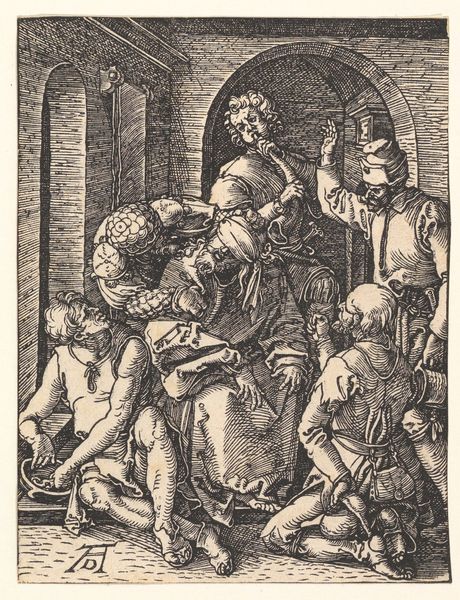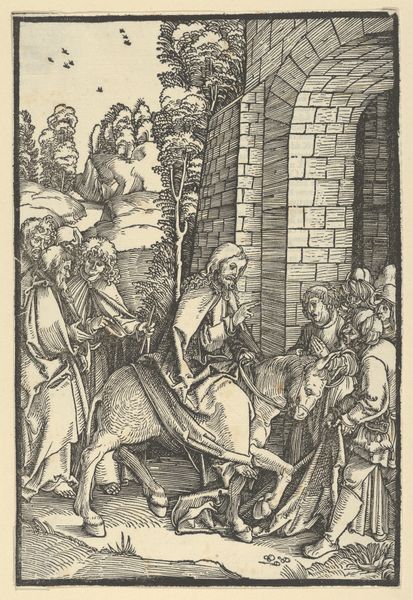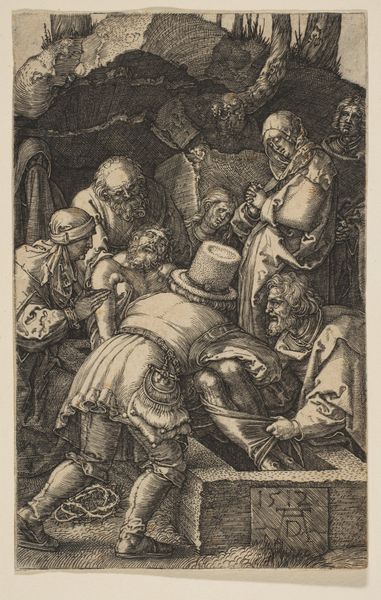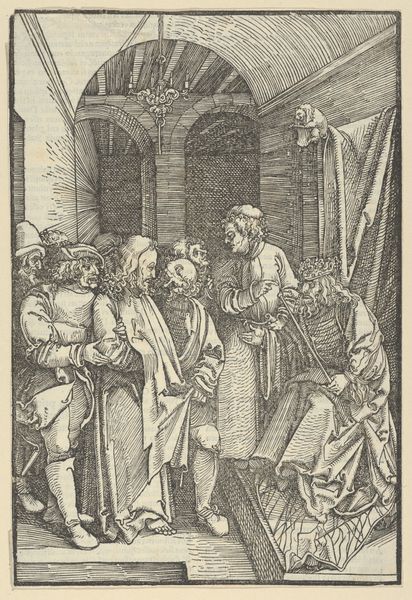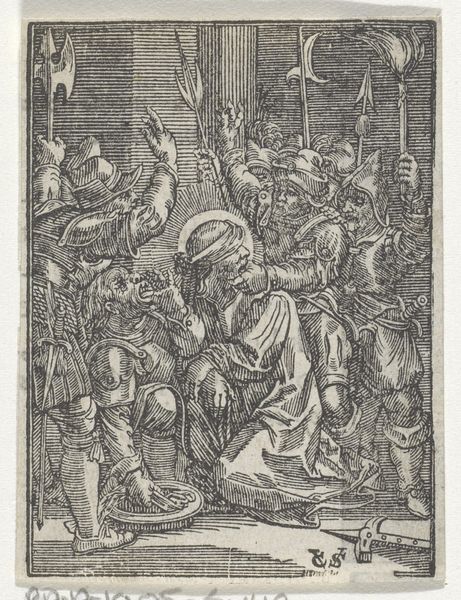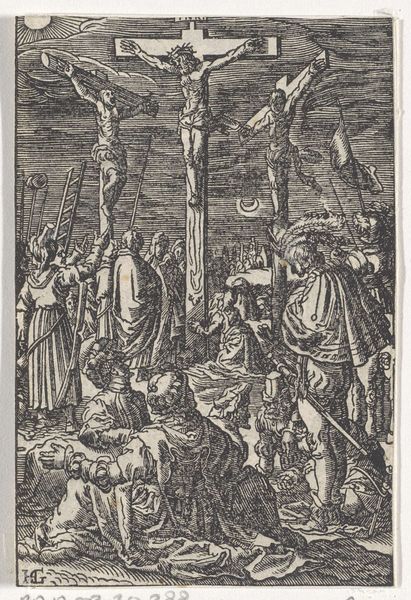
drawing, print, intaglio, ink, engraving
#
drawing
# print
#
pen illustration
#
pen sketch
#
intaglio
#
pencil sketch
#
figuration
#
ink
#
pen-ink sketch
#
portrait drawing
#
history-painting
#
northern-renaissance
#
engraving
Dimensions: height 112 mm, width 74 mm
Copyright: Rijks Museum: Open Domain
This print, depicting the Raising of Lazarus, was made in the late 16th or early 17th century by Wierix. It's an engraving, a process where the artist uses a tool called a burin to incise lines into a metal plate, which is then inked and printed. Consider the sheer labor involved. Every single line you see was physically cut into the metal by hand. The density of these lines creates the image's shading and detail. Look closely at the faces, the drapery, and the dramatic landscape in the background. The artist's skill with the burin brings these elements to life. Engraving was a key technology for disseminating images widely in this period. Prints like this allowed religious stories to reach a broad audience, acting almost like a form of mass production for the pre-industrial age. So, while it’s intricate and beautiful, remember that this print also represents a moment in the history of media and communication. By understanding the process, we can appreciate how art and technology intersect in profound ways.
Comments
No comments
Be the first to comment and join the conversation on the ultimate creative platform.
